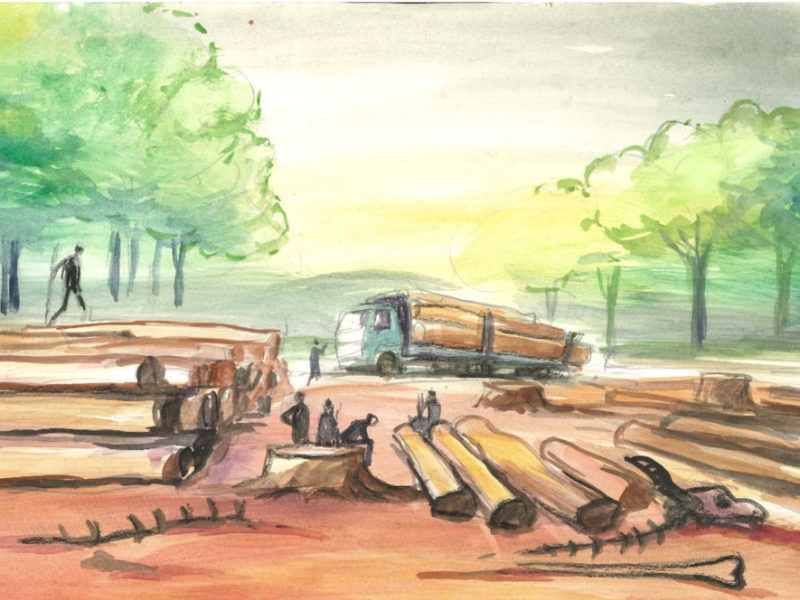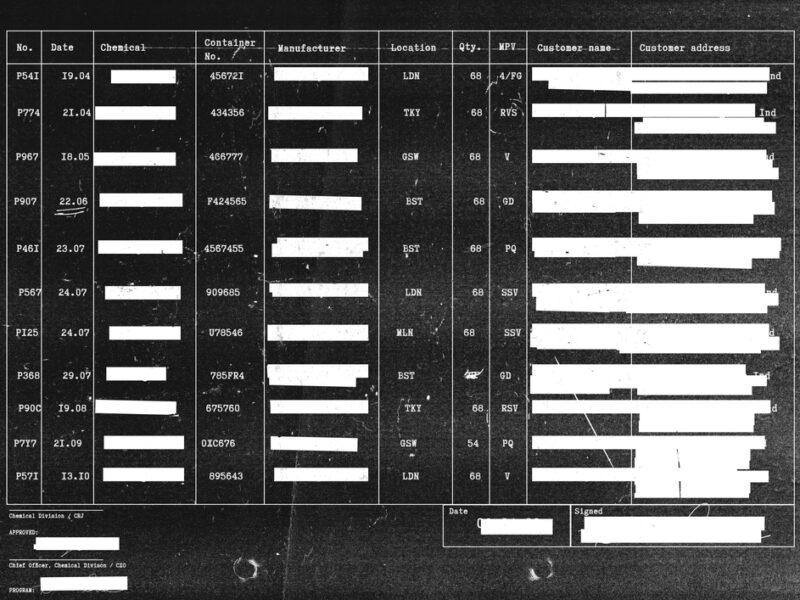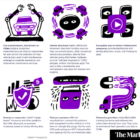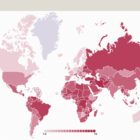Among the most pressing environmental challenges in Africa nowadays are land-grabbing due to infrastructure or agribusiness projects, water and river pollution, deforestation, desertification, trafficking of endangered species, and Indigenous peoples’ rights violations.
Organized Crime Guide
Guide to Investigating Organized Crime in the Golden Triangle: Chapter 4 — Human Trafficking
|
GIJN’s guide to investigating organized crime in Asia’s Golden Triangle. This chapter focuses on human trafficking in the regio
News & Analysis
Tracking Environmental Crimes During the War in Ukraine
|
Amid Ukraine’s whole-of-society wartime reorganization, experts and activists are using their skills to track the impact of the conflict on the country’s national parks and biospheres and to document possible environmental war crimes.
Research
Fixing the Journalist-Fixer Relationship
|
A new study explores the divisions between fixers and correspondents, as GIJN-member Global Reporting Centre examines alternate models of doing foreign reporting. The Centre’s Peter W Klein will be presenting the findings of the research at #GIJC17.
Top 10 in Data Journalism
Data Journalism Top 10: Vehicle Data Privacy, Formula One History, India’s Extrajudicial Killings, Losing Your Cool
|
This week’s Data Journalism Top 10 features a dive into the murky market for vehicle data, an analysis of the deteriorating quality of education in poorer countries, a piece on how higher temperatures affect our lives, and fact-checking India’s encounter killings.
aircraft tracking
Investigating Ties Between the US Deportation Industry and Sports Travel
|
Private air charter companies used to transport collegiate and professional sports teams are also part of a vast network of US deportation flights tied to possible human rights abuses.
Research
Introduction: GIJN Guide to Reporting on Migration in the Gulf Arab Countries
|
INTRODUCTION
More than 23 million migrant workers live in the six Middle Eastern countries that make up the political and economic alliance known as the Gulf Cooperation Council (GCC): Saudi Arabia, Kuwait, the United Arab Emirates, Qatar, Bahrain, and Oman. Unfortunately, abuse of these workers is widespread, mostly due to the legal framework of the kafala sponsorship system — the legal framework defining the relationship between migrant workers and their employers — which can result in contract violations and dangerous working conditions, benefit unscrupulous traffickers, and cause discord among brokers and employers.
Research
Online Research Tools
|
العربية | বাংলা | Español | Français |
Online Research Tools and Investigative Techniques by the BBC’s ace online sleuth Paul Myers has long been a starting point for online research by GIJN readers. His website, Research Clinic, is rich in research links and “study materials.” Here’s a tipsheet about finding people online that Myers presented at a 2019 GIJN webinar.
Document of the Day
Document of the Day: Global Organized Crime Index
|
State-embedded actors are the most dominant criminal actor type in the world. The degree to which criminality permeates state institutions varies, from low-level corruption to full state capture, but across the spectrum this involvement has implications for countries’ capacity to respond to organized crime.
Reporting on Vaccines
5 Tips to Help Journalists Report on Coronavirus Vaccines
|
To help reporters make sense of what’s known and yet to be learned about COVID-19 vaccines, Journalist’s Resource asked for insights from several people with expertise studying or reporting on vaccines.
Data Journalism
What Is Big Data?
|
“Big Data.” It seems like the phrase is everywhere. The term was added to the Oxford English Dictionary in 2013, appeared in Merriam-Webster’s Collegiate Dictionary by 2014, and Gartner’s just-released 2014 Hype Cycle shows “Big Data” passing the “Peak of Inflated Expectations” and on its way down into the “Trough of Disillusionment.” Big Data is all the rage. But what does it actually mean? we asked 40+ thought leaders in publishing, fashion, food, automobiles, medicine, marketing, and every industry in between how exactly they would define the phrase “Big Data.” Their answers might surprise you!














